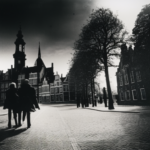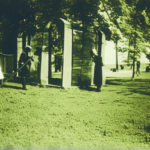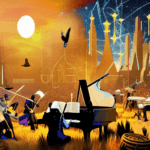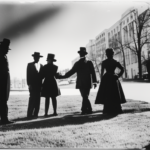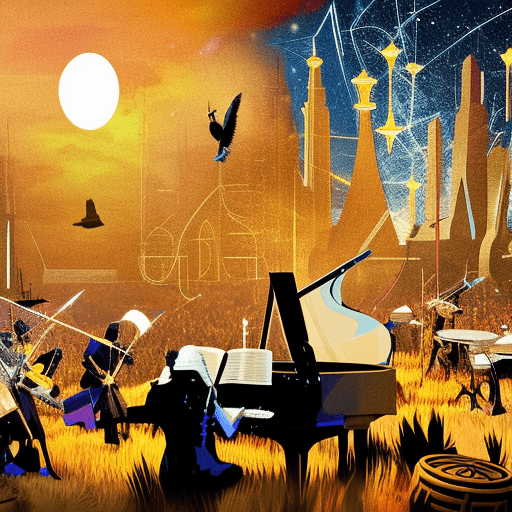The Rest Is Noise: Listening to the Twentieth Century
In The Rest Is Noise: Listening to the Twentieth Century, author Alex Ross takes readers on a captivating journey through the music of the 20th century, exploring its historical, cultural, and political contexts. From the revolutionary compositions of Stravinsky to the rise of jazz and rock ‘n’ roll, Ross delves into the transformative power of music and its profound impact on society. Through vivid storytelling and insightful analysis, he paints a comprehensive picture of the musical landscape of the 20th century, revealing the complex interplay between art, politics, and the human experience.
The Birth of Modernism
Ross begins his exploration by examining the birth of modernism in music, a movement that sought to break free from the constraints of traditional tonality. He delves into the groundbreaking works of composers such as Arnold Schoenberg and Igor Stravinsky, who challenged the established norms of music and paved the way for new and innovative forms of expression. Ross highlights the tumultuous political and social climate of the time, showing how these composers were influenced by the rapid changes happening around them. Through their music, they captured the anxieties, hopes, and aspirations of a world on the brink of transformation.
The Impact of Politics
Music has always been intertwined with politics, and Ross explores how the turbulent events of the 20th century shaped the music of the time. From the rise of fascism in Europe to the Civil Rights Movement in America, he demonstrates how composers and musicians responded to the political climate through their art. Ross discusses the works of Dmitri Shostakovich, whose music was both a reflection of and a response to the oppressive regime of Stalinist Russia. He also explores the influence of American jazz and African-American music on the fight against racial injustice, highlighting the powerful role that music played in inspiring social change.
The Pop Revolution
As the century progressed, popular music began to take center stage, challenging the dominance of classical music. Ross delves into the rise of jazz, rock ‘n’ roll, and other popular genres, examining how they reshaped the musical landscape and captured the spirit of the times. He discusses the cultural impact of artists such as Louis Armstrong, Bob Dylan, and The Beatles, who used their music to challenge societal norms and push boundaries. Ross also explores the emergence of electronic music and its influence on the development of new sounds and techniques.
- Music has the power to reflect and respond to the political and social climate of its time.
- The birth of modernism in music challenged traditional tonality and opened the door to new forms of expression.
- Popular music, such as jazz and rock ‘n’ roll, played a crucial role in shaping the cultural landscape of the 20th century.
- Music has the ability to inspire social change and challenge established norms.
“Music can be a refuge from the world, but it can also be a way of engaging with it more deeply.”
In The Rest Is Noise: Listening to the Twentieth Century, Alex Ross offers a captivating exploration of the music of the 20th century, revealing its profound impact on society and its ability to reflect and respond to the world around it. Through his vivid storytelling and insightful analysis, Ross brings to life the revolutionary compositions, the political struggles, and the cultural transformations that shaped the musical landscape of the century. This book is a must-read for music lovers and anyone interested in understanding the powerful role that music plays in our lives.
